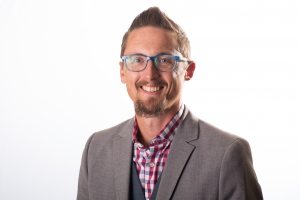Why Giving Food to the Hungry, Money to the Poor, and Water to the Thirsty Doesn’t Make a Lasting Difference.
Yesterday I read another annual report from a soup kitchen that boasted serving 180,000 hot meals in 2010 – a 10% increase from the 164,000 hot meals served in 2009. It was depressing. Those numbers tell me the hunger problem is getting worse not better.
I read similar depressing growth numbers from a microfinance organization focused on getting loans to the poor. They increased the number of poor entrepreneurs in debt from 71,000 to 92,000 – a 30% rate of growth. I wasn’t sure if poor entrepreneurs are now growing their business income or just learning how to live on credit. I do know if loaning money to the poor was the answer, PayDay loans would be improving communities rather than preying on them. If the poor just needed money, then welfare and billion-dollar aid programs would have changed the world. There are many more outcomes to measure and factors to consider before I have the confidence that money available to the poor will make sustainable life improvements.
I also read a recent report on the successful completion of over 700 water wells in rural Africa. An organization posted these results next to a statistic about water-borne illnesses: a child dies every 20 seconds from a water-borne disease. I wanted to believe that the water wells would change that statistic, but I am well aware that over 1/3 of water points in Africa end up nonfunctional. I also know that getting people to wash their hands with soap is nearly twice as effective as a clean water supply in reducing water-borne disease. If this clean water provider isn’t doing more than digging wells, they may not be doing much at all.
These concerns fuel a question that haunts me everyday as I advise families and foundations with their giving: Are we really making a lasting difference or is the majority of charitable work a composite of good intentions that produces temporary helps?
I don’t ask this tough question or cite my concerns to discourage giving but to encourage intelligent giving. We need to connect our heads to our heart for helping. When we take some time to do our homework, we can find organizations and initiatives that are making a lasting difference.
Although dozens of water well diggers fail to ensure each well’s continuous functionality, low-cost repair, and combination with health and hygiene training, some organizations do. Check out Integrated Community Development International. They are getting it right.
Paradigm Shift is another organization in the economic development space that has found the right comprehensive program through which to get money to poor entrepreneurs who will grow their businesses and get on a path to the middle class in South Africa. Clients of Excellence In Giving have funded their work in South Africa and seen an average 72% business income increase for all program participants in the country. That income increase enables the entrepreneur to care for an average of 5 dependents. The reason it works has to do with a comprehensive, hands-on business training program, one-on-one personalized mentoring, a stringent application process for business loans, the engagement of indigenous middle-class volunteers, and a spiritual formation component that shapes character not just business skills. One local partner in South Africa who runs a Paradigm Shift program recalled how their previous feeding program saw the same group of poor folks show up for 10 years in a row. Now they have a path to lead them out of everlasting dependency on charity.
The same kind of difference is being made by Rescue Missions who refuse to just give food to the hungry and homeless. Comprehensive, long-term programs at Star of Hope in Houston, TX or the Denver Rescue Mission in Denver, CO are reporting high rates of sustained employment and multi-year independent living for program graduates. They can not only report how many hot meals are made but also how many people no longer need someone else to provide them with hot meals. That is exciting!
Giving food to the hungry, money to the poor, and water to the thirsty doesn’t make a lasting difference. But there are plenty of organizations that have figured out complex solutions to complex problems. Informed giving will identify these groups and commit philanthropic capital to the noble work of sustainable life improvement. It can be done!
Go to Blog Home





Add Your Comments
Reader Comments
0 comments